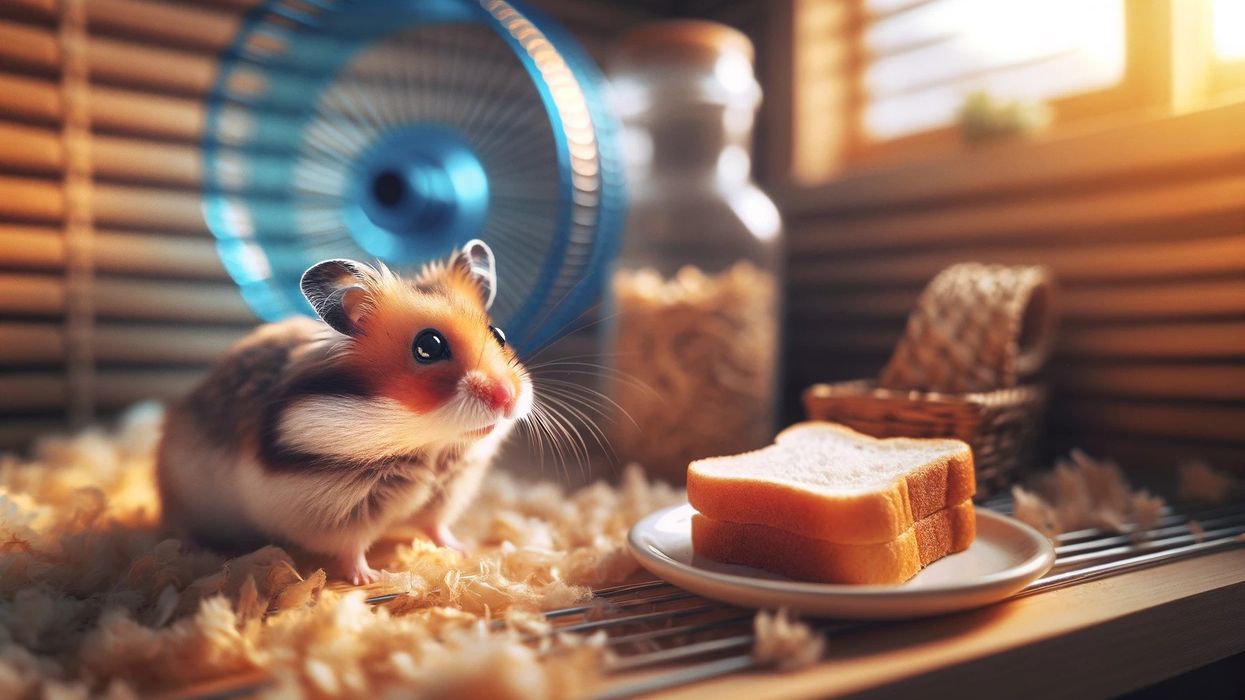Understanding what is and isn't safe for pregnant women to eat can be confusing at the best of times.
When we start having to learn what cheeses are made with pasteurized milk and which hard cheeses are a no-go for pregnant women, it can truly boggle our minds. That's why we wanted to give some handy advice to help you avoid any harmful foods and stay safe.
Cheese is full of calcium that is healthy for you and your baby when you're pregnant, but not all cheeses are safe to eat. We'll let you know if eating goats cheese when pregnant is a possibility, and which types of soft cheese are a health risk to you.
Give this a read before you think about tucking into goats cheese on pizza when pregnant or some melted camembert as a special treat, so you know the reasons why you should avoid certain types of cheese.
Are you looking for some more articles on how to handle pregnancy? Why not take a look at early pregnancy anxiety or what it means when you're [feeling cold during pregnancy]?
What Cheeses Can You Eat During Pregnancy?

We want to start with the good part because there are loads of cheeses that are safe during pregnancy. These cheeses are good for your calcium intake in moderation, without being high risk to your health, so we recommend tucking in.
All hard cheeses are safe for eating, no matter if they are made with unpasteurized or pasteurized milk. The risk of unsafe bacteria growing in them is far lower than in soft cheese because they have a lower water content.
On top of that, hard cheese that is smoked or unsmoked is safe to eat. Cheddar, Edam, Gouda, Gruyere, Emmental, Manchego, Parmesan, Provolone, Jarlsberg, and Red Leicester are just a few of the tasty cheese varieties that you can tuck into happily without worrying.
Some soft goat cheese is pasteurized which means that it is generally safe to eat. It's best to look at the packaging and check what it says to be sure.
Most will state that they're safe or unsafe to eat, but as a general rule, pasteurized goat cheese is safe to eat, though it is worth searching online about the specific type before tucking in.
Meredith goat cheese is an example of a pasteurized goat cheese that is delicious and can be eaten raw. Different types of goat cheeses can be pasteurized or unpasteurized, so if it is soft it doesn't definitely mean it's dangerous.
Again, it's best to check.
Hard goat cheese is also generally safe to eat because the texture means that the cheese has low moisture levels, which means that there is fewer harmful bacteria. Avoid eating any soft goat cheese or cheeses with white rind when you're expecting, because these can be dangerous.
If you're a soft cheese lover, then don't worry! Many soft processed cheeses that have been made from pasteurized milk are safe to eat during pregnancy, including eating feta cheese when pregnant, as well as halloumi, cottage cheese, mozzarella, ricotta, and cream cheese.
Look at the label of a cheese to check if it is pasteurized, and press it with your finger to see how hard it is. It is a soft cheese if your finger created an indented mark, and a hard cheese if not.
What Cheeses Can You Not Eat During Pregnancy?
So you know which cheeses are safe to eat when you're expecting, but it's most important to know which are best to avoid because these are what could potentially be harmful to your baby.
As a rule of thumb, it's best to avoid all soft cheeses, unless you know that they are safe for you to eat. It's better to play it safe and stay away if you're not sure.
Mold-ripened cheeses like Brie, Camembert, and Chevre (goat cheese that has a white rind) could all contain harmful bacteria that is not safe during pregnancy.
You should also stay away from blue cheese while pregnant, including blue cheese that are soft like Roquefort, Danish Blue, Gorgonzola, Shropshire Blue, and Tomme, as they are also mold-ripened.
Any soft cheeses made with unpasteurized milk could be harmful too. Even if soft cheeses are made from pasteurized milk, if it is blue-veined it will be unsafe to eat, because listeria bacteria grows on soft blue cheeses more easily as they are more moist than other cheeses.
Don't worry though, there is a way to still indulge in your favorite cheese if you truly can't get enough. By cooking the cheese until it is piping hot (not just melted), you can enjoy pretty many types of soft cheese or goat cheese, because the bacteria will be killed by the heat.
It must reach a temperature of 165°F to kill off the bacteria, so you need to be extra careful when cooking to ensure it reaches that temperature.
Why Can't You Eat Some Cheeses?
Unpasteurized and blue-veined cheeses can carry bacterial contamination that's called listeria monocytogenes, which can make you ill with a condition called listeriosis.
It is an illness that has flu-like symptoms, though sometimes you won't have any symptoms at all that you notice. In pregnancy, it can be very dangerous for your unborn baby, because it can lead to premature birth, miscarriage, or even loss of baby at birth in some extreme cases.
The process of pasteurization kills all of the yeast and bacteria that you find in raw milk, so when a cheese is pasteurized it is generally safe for you to eat during pregnancy. Unpasteurized cheeses can still contain the harmful listeria monocytogenes. As ever, we recommend checking the specifics for any cheese you choose to eat during pregnancy.
What Foods Are Good To Eat In Pregnancy?

During pregnancy, you want to make sure you have enough healthy proteins, fats, complex carbohydrates, fiber, fluids, vitamins, and minerals. It is important to eat food that is healthy for you and your baby and to avoid things that could be harmful during pregnancy.
It's best to get advice from medical professionals before you risk eating food that you aren't sure about.
Dairy products are great for extra protein and calcium, especially yogurt.
Berries are great to eat while you're pregnant because they are full of antioxidants and vitamins, with low sugar content.
Protein is essential when you're pregnant, and regular portions of animal-sourced proteins like fish and lean meat are important. If you don't eat animal products, you can replace these with tofu, beans and lentils, and quinoa.
Although it is best to avoid some fish while pregnant because of the high mercury content, salmon is a healthy alternative. It's full of those good healthy omega-3 fatty acids that are great for your baby.
If you found this article about goat cheese, listeria, and pregnancy helpful, why not take a look at our tips for a first-time dad or how to deal with [gender disappointment]?










